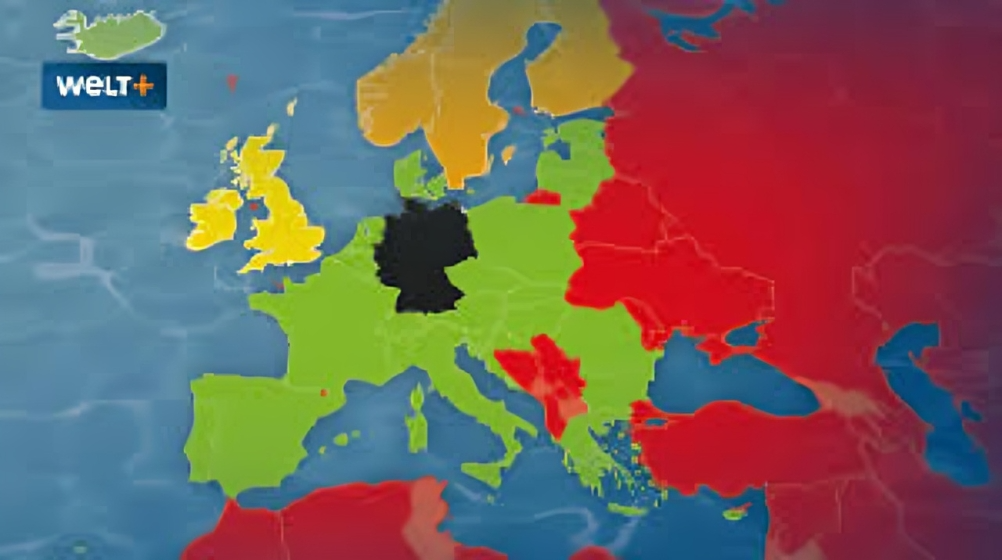Traveling is one of life’s greatest joys, but when it comes to planning a trip, unexpected alerts can throw a wrench in your plans. One alert you might encounter while organizing your getaway is the Reisewarnung. This German term refers to travel warnings that indicate potential risks associated with certain destinations. Understanding these alerts is crucial for anyone looking to navigate their travel plans safely and effectively.
Whether you’re dreaming of sun-soaked beaches or exploring bustling city streets, knowing how to interpret Reisewarnung alerts will help ensure you have an enjoyable experience without any surprises along the way. Let’s dive into what Reisewarnung alerts are all about and how they can impact your next adventure!
What are Reisewarnung Alerts?

Reisewarnung alerts are official travel warnings issued by governments, primarily aimed at informing citizens about potential risks in specific countries or regions. These alerts can cover a range of issues, including political instability, health concerns, natural disasters, or security threats.
Typically categorized into different levels, these warnings help travelers assess the safety of their intended destinations. A higher level indicates more severe risks that could affect personal safety and well-being.
Understanding Reisewarnung alerts is essential for making informed decisions before embarking on any journey. Travelers should pay attention to these notifications as they can change frequently based on current events. Keeping an eye on these updates helps ensure you’re prepared for any challenges that may arise during your travels.
Understanding the Different Levels of Warnings
Reisewarnung alerts come with different levels, each indicating the degree of risk associated with travel to specific destinations. Understanding these levels is crucial for making informed decisions.
Level one typically signifies a general advisory. It encourages travelers to exercise normal precautions but does not imply significant danger. This level often applies to popular tourist spots where typical safety measures suffice.
Moving up, level two introduces a warning about potential risks. Travelers are advised to be vigilant and may encounter increased crime or political unrest in certain areas.
Level three represents a serious warning against all non-essential travel. Here, conditions can be hazardous due to conflict, health crises, or natural disasters.
Each designation helps you gauge how much caution you should use when planning your trip while ensuring that enjoyment remains at the forefront of your journey.
How to Check for Reisewarnung Alerts Before Booking a Trip
Before you book your next adventure, checking for Reisewarnung alerts is essential. Start by visiting official government websites that display travel advisories. Countries often have dedicated pages where they update safety information.
Social media can also be a helpful tool. Many governments and embassies use platforms like Twitter to share real-time updates on travel warnings.
Consider downloading travel apps that track Reisewarnung alerts. These apps provide notifications directly to your device, keeping you informed wherever you are.
Don’t overlook the importance of local news sources in your destination country. They can offer insights into current situations or events affecting travelers.
Connect with fellow travelers through forums or social media groups to gain firsthand accounts and experiences about the area you’re considering visiting. This can give you a clearer picture beyond just the numbers and alerts.
Important Factors to Consider When Planning Your Trip Based on Warnings
When planning your trip in light of Reisewarnung alerts, start by assessing the nature of the warning. Is it related to health concerns, political instability, or natural disasters? Understanding this will help you gauge potential risks.
Next, consider your personal comfort level with risk. Some travelers thrive on adventure even in uncertain situations, while others prefer more secure environments. Your peace of mind is essential.
Evaluate travel insurance options as well. A comprehensive policy can cover unexpected cancellations or medical emergencies that may arise due to changing conditions.
Think about flexibility in your itinerary. Planning a trip with adjustable dates and accommodations allows for quick changes if circumstances shift unexpectedly. This adaptability can enhance both safety and enjoyment during your travels.
Tips for Staying Safe While Traveling in High-Risk Areas
When traveling in high-risk areas, awareness is your best ally. Always stay informed about the local situation. Keep an eye on news updates and listen to local authorities.
Avoid flashy displays of wealth. Dress modestly to blend in with the locals, which can help you avoid unwanted attention.
Stay connected with friends or family back home. Regular check-ins provide reassurance for both you and them.
Plan your routes ahead of time, opting for well-lit and populated areas whenever possible. Carry a charged phone with emergency contacts easily accessible.
Invest in travel insurance that covers emergencies specific to high-risk regions. This extra layer of security can make a huge difference if something goes wrong.
Trust your instincts; if something feels off, it probably is. Your safety should always come first when exploring new destinations.
Resources for Up-to-Date Reisewarnung Information
To stay informed about Reisewarnung alerts, utilize official government websites. Most countries maintain dedicated travel advisory pages that provide the latest updates on safety and security concerns.
Social media platforms also play a crucial role in disseminating quick information. Follow credible organizations like the World Health Organization or international embassies for real-time notifications.
Mobile apps can be handy too. Some applications are designed specifically to track travel warnings and advisories, delivering instant updates directly to your device.
Additionally, subscribing to newsletters from reputable travel agencies or news outlets can keep you updated with the latest developments regarding global travel risks.
Don’t overlook local resources if you’re already abroad. Contacting local tourist offices or expat communities can provide insights into specific regional dangers not covered by broader alerts.
Making Informed Decisions and Enjoying Your Trip Safely
Making informed decisions is crucial for a smooth travel experience. Start by thoroughly researching your destination. Understand the local customs, culture, and any recent developments that could impact your stay.
When considering Reisewarnung alerts, weigh the risks against your travel goals. Sometimes, an area may have warnings but also offers incredible experiences worth exploring with caution.
Always keep safety in mind while you navigate high-risk areas. Register with local authorities if needed and share your itinerary with family or friends back home.
Pack essentials like first-aid kits and emergency contacts to ensure you’re prepared for unexpected situations. Trust your instincts; if something feels off, don’t hesitate to change plans.
Embrace spontaneity while being mindful of precautions. Enjoying new adventures can coexist with staying safe when you’re well-informed about potential challenges ahead!
Conclusion
Traveling can be one of life’s greatest joys, but navigating the complexities of Reisewarnung alerts is essential for a safe and enjoyable experience. Understanding what these alerts are and how to interpret their levels empowers you to make informed decisions about your journey. Always check for updates before booking your trip, keeping in mind that various factors such as local conditions and personal circumstances should influence your plans.
Staying safe while traveling requires vigilance, especially in areas deemed high-risk. Use reliable resources to keep yourself updated on any changes in travel warnings, ensuring you have all the necessary information at hand. By prioritizing safety without compromising on adventure, you can explore new destinations with confidence.
Planning ahead not only enhances your travel experience but also ensures you’re equipped to handle whatever comes your way. Embrace the thrill of discovery while being mindful of potential risks; this balance allows for unforgettable memories without unnecessary worry.

